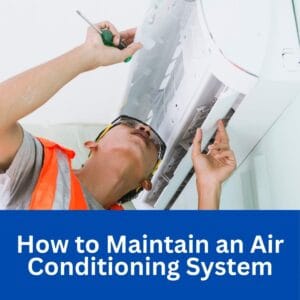

Your home’s HVAC system is one of its most essential features. From keeping you warm on cold winter nights to ensuring you stay cool during the hottest summer afternoons, your heating, ventilation, and air conditioning unit works hard behind the scenes. But like any complex system, it needs regular care. Understanding the importance of HVAC maintenance can help homeowners avoid expensive repairs, reduce energy consumption, and create a healthier living environment.

The average homeowner gives little thought to their HVAC system — until something goes wrong. Yet this equipment operates silently in the background, maintaining indoor comfort throughout the seasons. Regular HVAC maintenance ensures that your system continues to perform optimally without unexpected interruptions.
Ignoring your HVAC system can lead to increased energy bills, frequent repairs, and even health hazards. Just as you wouldn’t drive your car for years without an oil change, your heating and cooling system needs routine attention to stay in peak condition.

HVAC stands for heating, ventilation, and air conditioning. These elements work together to regulate your indoor climate, ensuring your home stays comfortable and your air stays clean.
An HVAC system is more than just a thermostat and a furnace. It includes:
Each component must function properly to maintain efficiency and comfort.
Your HVAC system is vital to maintaining a comfortable temperature year-round. Beyond temperature, it improves indoor air quality by filtering out harmful particles such as pollen, pet dander, and dust mites. A well-maintained system protects your family’s health while ensuring optimal comfort.
Controlling humidity is another crucial role of your HVAC system. Too much moisture can lead to mold growth, warped wood, and increased allergens, while air that’s too dry can cause skin irritation and respiratory issues. Proper maintenance ensures balanced indoor humidity levels.
Routine HVAC maintenance helps detect small issues before they escalate into major repairs. Worn belts, clogged filters, or loose connections can be easily addressed during regular checkups, saving homeowners from sudden, expensive failures.
An HVAC system is a significant investment. With proper maintenance, your system can last 15–20 years or more, delaying the cost of replacement and ensuring reliable performance.
Dust buildup, clogged filters, and worn parts force your HVAC system to work harder. When components are clean and well-lubricated, your system operates at peak efficiency, reducing energy usage and environmental impact.
By optimizing performance, HVAC maintenance leads to lower monthly utility bills. Small efficiency improvements add up, putting more money back in your pocket each year.
Your HVAC system circulates air throughout your home. Without regular maintenance, dust, allergens, and pollutants accumulate, exacerbating allergies and respiratory conditions. Clean filters and ducts mean cleaner air for your loved ones.
A cracked heat exchanger or faulty electrical components could lead to carbon monoxide leaks or fire hazards. Professional inspections ensure your system operates safely, giving you peace of mind.
Before the heat arrives, have your air conditioning system inspected. A tune-up includes cleaning coils, checking refrigerant levels, and calibrating the thermostat to ensure efficient cooling during summer.
When temperatures drop, your furnace becomes essential. Fall maintenance ensures safe operation, efficient heating, and reliable performance all season long.
Poor maintenance can lead to excess moisture in ducts, creating a breeding ground for mold. Mold spores impact air quality and can cause structural damage over time.
Low refrigerant levels not only reduce cooling capacity but also strain your compressor. Left unchecked, this can result in costly repairs or the need for complete system replacement.

If you notice these signs, schedule HVAC service promptly to avoid further damage.
Homeowners can change air filters, clean debris around outdoor units, and monitor thermostat settings to help their systems run smoothly.
Tasks like refrigerant management, electrical diagnostics, and thorough system cleaning require licensed HVAC technicians with specialized tools and expertise.
Most homes benefit from changing filters every 1-3 months. Homes with pets, smokers, or allergy sufferers may require more frequent changes to maintain air quality.
From basic fiberglass filters to high-efficiency HEPA filters, select a filter that meets your household’s needs for dust, pollen, and other allergens.
A properly calibrated thermostat prevents your system from overworking, saving energy while keeping your home comfortable.
Smart thermostats provide greater control over your heating and cooling. Features like programmable schedules, remote adjustments via smartphone apps, and energy reports help reduce waste and costs.
Over time, ducts can become blocked with dust and debris, limiting airflow. Regular inspections and cleanings restore proper air circulation and system efficiency.
Leaks in your ductwork can waste up to 30% of heated or cooled air. Sealing these leaks helps improve efficiency and comfort while lowering utility bills.
When refrigerant is low, your air conditioner must work harder, increasing wear on the compressor and shortening the system’s lifespan.
HVAC technicians use precise gauges and leak detectors to monitor refrigerant levels, topping off only when needed and in compliance with environmental standards.
HVAC maintenance plans generally provide biannual tune-ups, priority scheduling, repair discounts, and detailed system health reports — offering both convenience and savings.
A maintenance plan reduces the risk of unexpected breakdowns, spreading costs evenly over time while keeping your system running efficiently.
Efficient HVAC systems use less energy, which means fewer greenhouse gas emissions and a smaller environmental impact.
Well-maintained systems integrate more easily with solar panels and other renewable energy solutions, helping homeowners contribute to a sustainable future.
This misconception leads to costly repairs and shortened system lifespan. Preventative maintenance is always more cost-effective than emergency fixes.
Even brand-new systems require regular service to maintain efficiency, protect warranties, and avoid early wear and tear.
Seek technicians with NATE certification, proper licensing, and insurance. These credentials signal professionalism and expertise like Air United Mechanical.

Check online reviews and ask potential service providers about their experience, guarantees, and maintenance plans before hiring.
Depending on system size, complexity, and service plan inclusions, expect to invest between $150 and $500 annually for routine HVAC maintenance.
The small annual expense of maintenance pays off in extended system life, fewer repairs, and lower utility costs, offering outstanding value for homeowners.
Your HVAC system is central to your home’s comfort, health, and efficiency. By scheduling regular HVAC maintenance, you can prevent costly repairs, extend the life of your system, and keep energy bills under control. Don’t wait for something to break — invest in proactive care and enjoy peace of mind year-round.
Schedule a reliable HVAC maintenance appointment today and start saving before the next Texas heatwave strikes.




